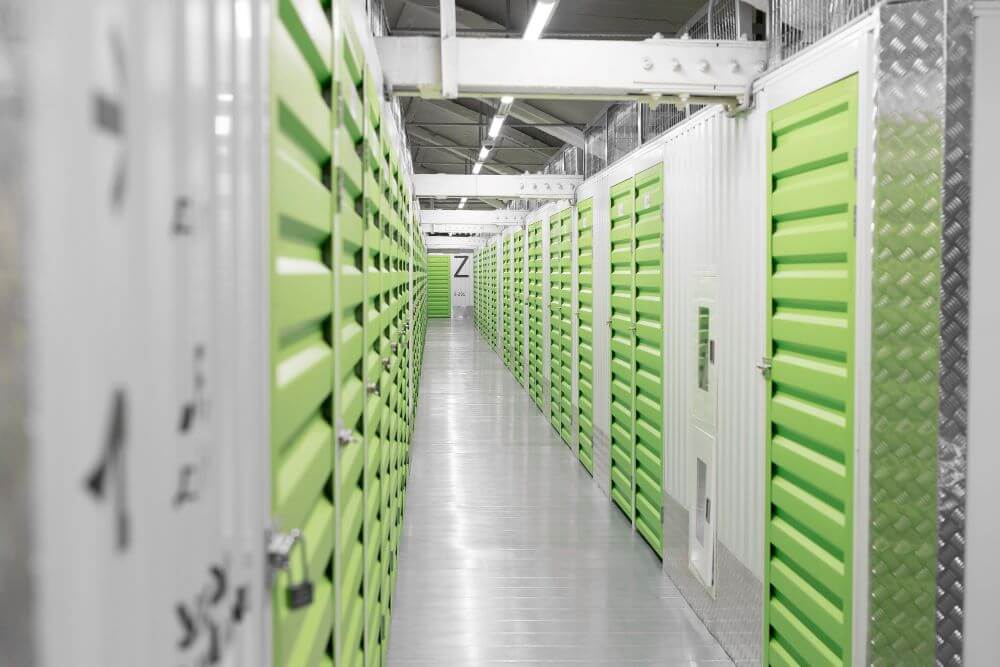Self-storage can play a surprising role in your business’s financial strategy. Imagine a small business owner using accessible self-storage to keep seasonal inventory, freeing up valuable office space. Not only does this improve operations, but it also opens up potential tax deductions. For instance, a retailer storing extra stock can deduct these storage costs, translating to savings come tax season. This clever use of self-storage can significantly impact your bottom line.
Maximizing Tax Benefits with Self-Storage
Utilizing accessible self-storage can lead to significant tax advantages for businesses. By effectively managing your storage needs, you can take full advantage of various tax benefits, including:
- Deductions for Storage Costs: Expenses related to storing inventory or equipment are often deductible.
- Improved Operational Efficiency: Reducing clutter and organizing space can enhance productivity.
- Increased Property Value: Efficiently managing your business’s physical space can improve the overall property value.
- Seasonal Storage Solutions: Storing seasonal items or excess inventory during off-peak times can optimize space and reduce costs.
- Flexible Space Management: Adjustable storage solutions allow you to scale up or down based on current needs.
Expert advice confirms that “strategically using self-storage can streamline operations and enhance tax efficiency.”
Note: Businesses storing inventory in a self-storage unit can often benefit from lower insurance premiums due to reduced risk.
Choosing the Right Self-Storage for Your Business
When selecting a self-storage solution for your business, accessibility is crucial. Businesses benefit significantly from finding accessible self storage spaces near me to ensure that inventory and important documents are always within reach. Proximity reduces time spent on transportation and minimizes interruptions to daily operations.
Moreover, easily accessible units streamline the process of retrieving or storing items, which can enhance overall efficiency and productivity. The convenience of having a storage location close by allows for quick adjustments to inventory and can be a vital factor in maintaining smooth business operations. This strategic approach not only supports operational needs but can also lead to cost savings and improved organizational effectiveness.
Maximizing Efficiency with Self-Storage
Effective use of self-storage can greatly enhance business efficiency.
Here’s how:
- Streamlined Inventory Management: By using self-storage units, businesses can keep excess inventory organized and accessible. This reduces clutter in the main workspace and allows for a more efficient stock rotation.
- Cost-Effective Solutions: Renting a self-storage unit can be more economical than expanding office or warehouse space. This helps businesses save on overhead costs while still having ample space for essential items.
- Flexibility and Scalability: Self-storage units offer flexible lease terms, allowing businesses to scale up or down based on their needs. This adaptability is particularly useful for seasonal businesses or those experiencing rapid growth.
Utilizing self-storage can also facilitate easier transitions during relocations. For instance, if your business is moving, you can find movers who will work with your storage needs to ensure a smooth process. Proper planning with self-storage can streamline the moving process and reduce downtime.
Research: A study from the National Association of Storage Providers found that businesses using self-storage reported a 25% increase in operational efficiency. This efficiency is attributed to better inventory management and the ability to adjust storage needs quickly without major disruptions. By understanding and implementing effective storage solutions, businesses can enhance their operational capabilities and maintain a more organized, productive environment.
Leveraging Self-Storage for Tax Benefits
Using accessible self-storage spaces can offer surprising tax benefits for businesses. When you rent a storage unit, the costs associated with it can often be classified as a business expense, which can help reduce your taxable income. This is particularly advantageous for businesses that need to store inventory, documents, or equipment. Additionally, if the storage unit is used to support business operations, such as keeping seasonal stock or important records, the expense may be fully deductible.
“Utilizing self-storage strategically not only helps in managing physical space but also can significantly impact your tax situation,” says a financial advisor. Keeping detailed records of storage expenses and how they relate to your business operations is crucial for maximizing these tax benefits. By aligning storage use with your business needs and tax planning, you can streamline your operations while potentially saving on taxes.
Understanding Tax Benefits of Storage
Navigating the tax benefits of using self-storage can be straightforward with the right knowledge. Accessible self-storage spaces can serve as a valuable asset for businesses looking to optimize their tax strategy. Expenses related to these units, such as rental fees, are often deductible if the storage supports business activities. This deduction can help reduce taxable income, ultimately benefiting your bottom line.
By utilizing storage for inventory, equipment, or important documents, businesses can claim these expenses on their taxes, making it easier to manage cash flow and improve profitability. Additionally, keeping accurate records of storage expenses and their business use is crucial for maximizing deductions.
Stat Box:
- Tax Savings Potential: Up to 30% reduction in taxable income from deductible storage expenses.
For more detailed guidance on how storage expenses impact your taxes, you might want to explore resources on taxes. This can provide valuable insights into leveraging storage costs effectively in your overall tax planning strategy.
Maximizing Business Efficiency with Storage
As we’ve explored, accessible self-storage solutions can significantly enhance business operations and financial management. By strategically utilizing storage units, businesses can improve organization, streamline operations, and benefit from tax deductions. The ability to easily access and manage inventory, equipment, and important documents from a well-maintained storage unit can lead to more efficient workflow and reduced clutter.

